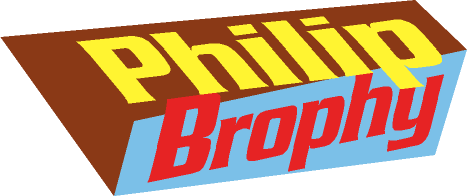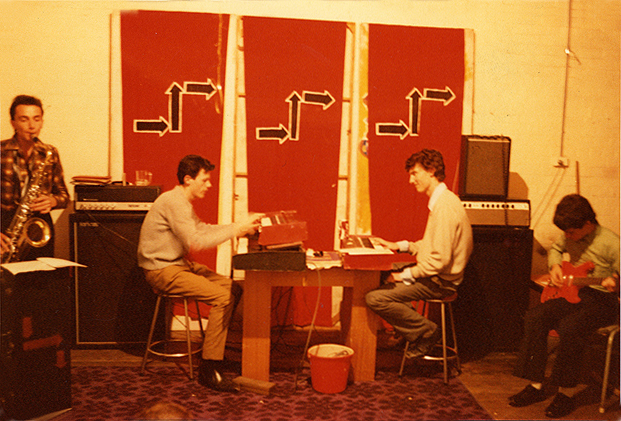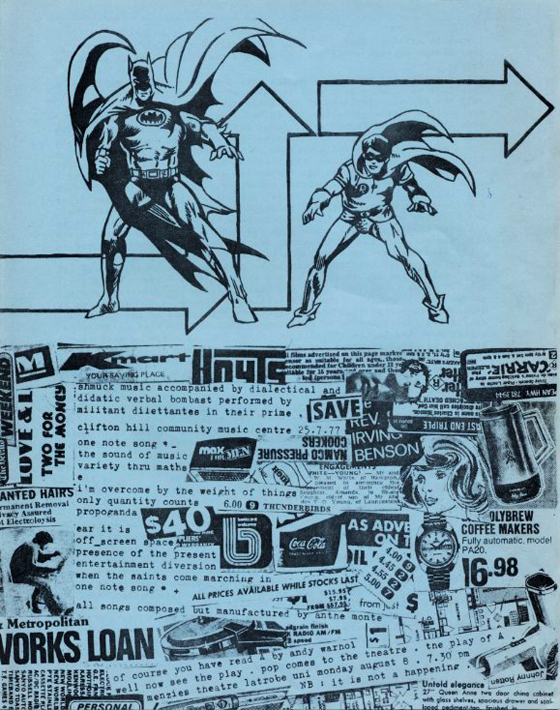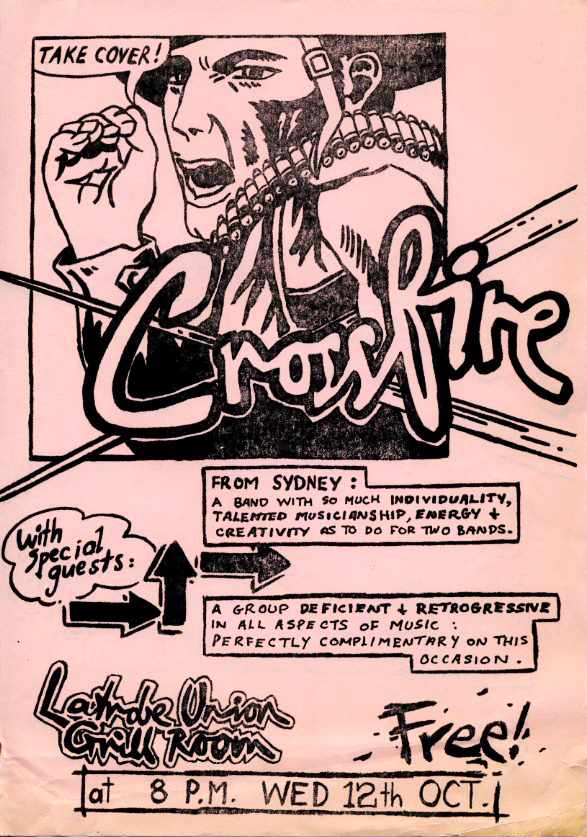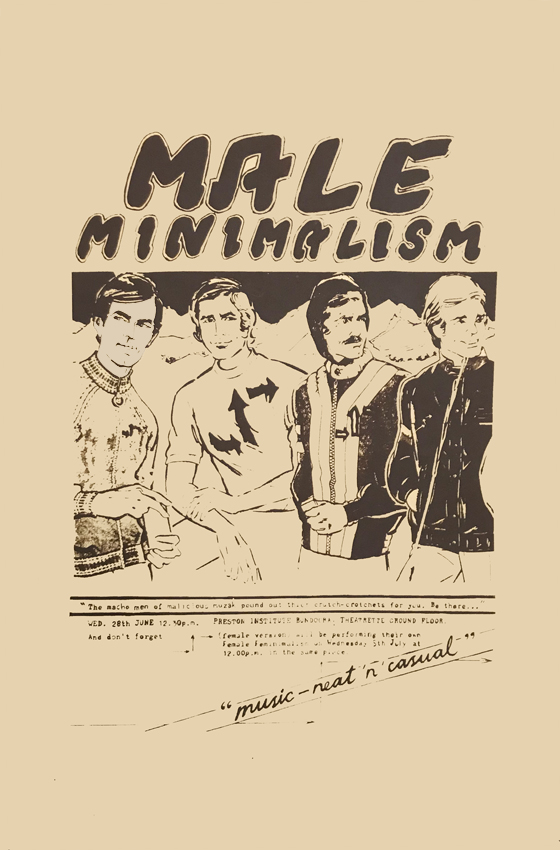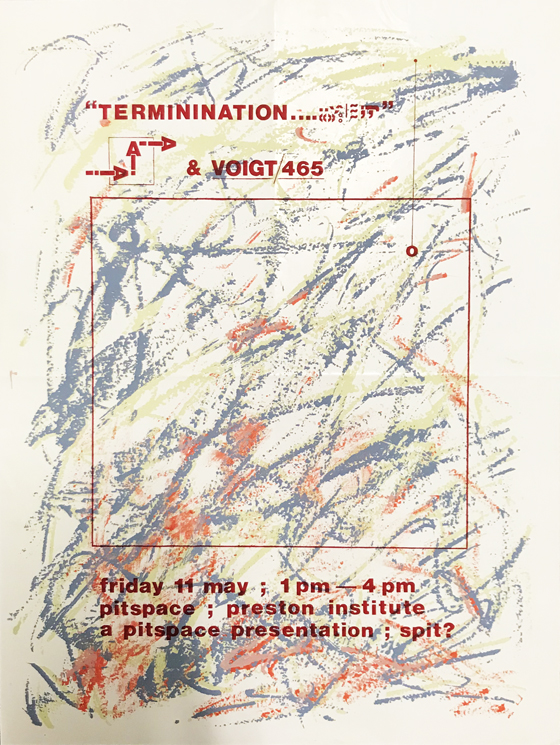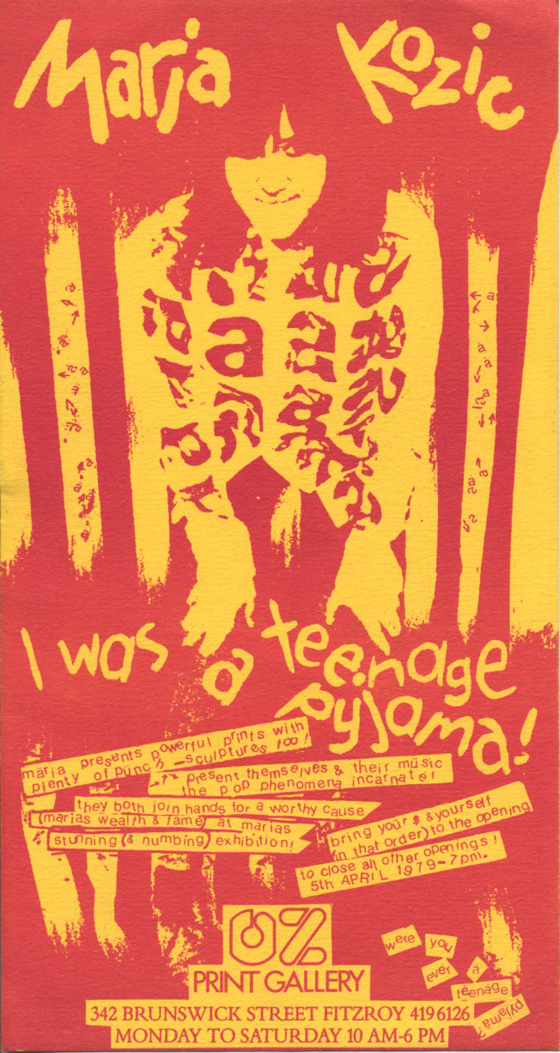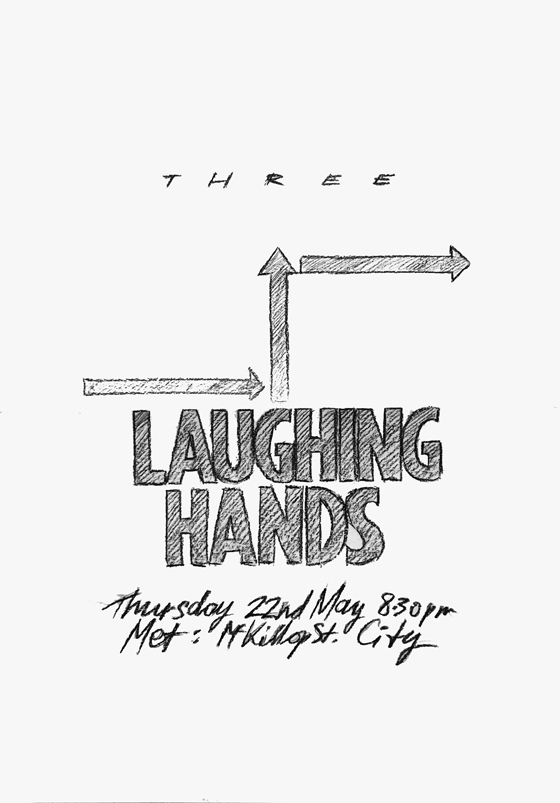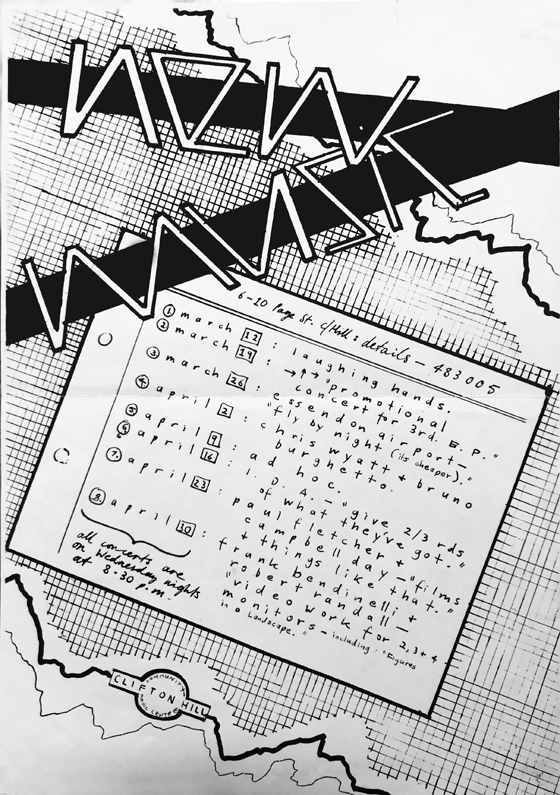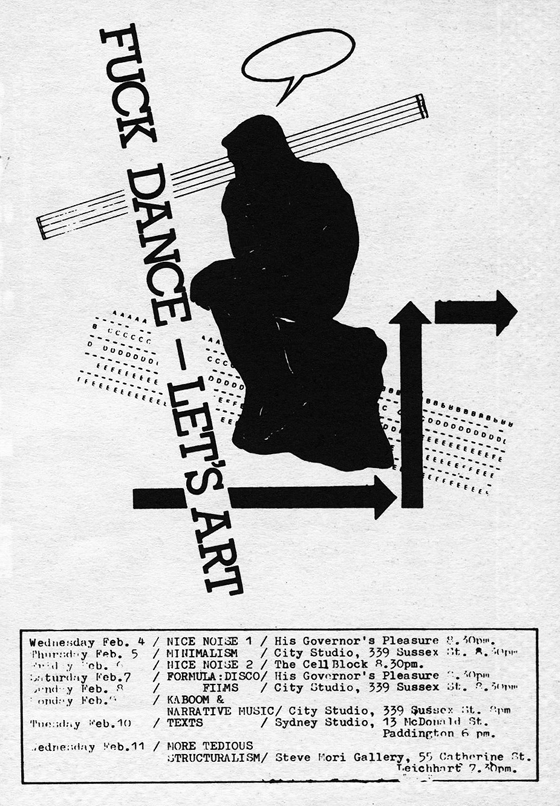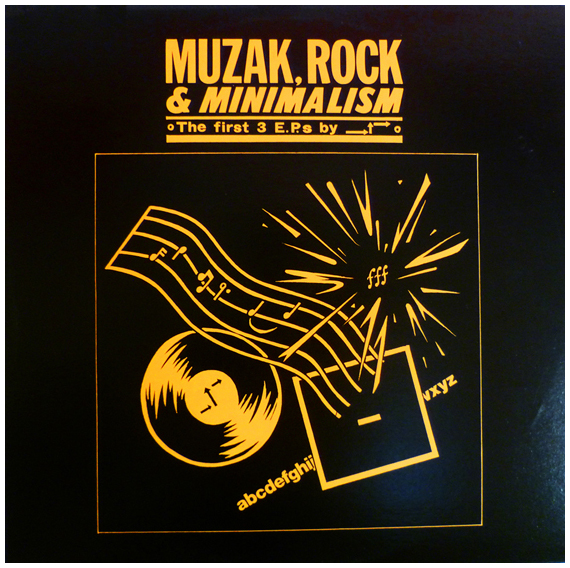a  production
production
Background
Minimalism was the first live → ↑ → project. Bluntly labelled, it approached Minimalist music not as a transcendental practice, but as an unforgiving and undeveloping manifestation of static music. Approached with Duchampian zeal and Warholian perversity, it announced → ↑ →'s modus operandi as a quixotic meld of severe experimentalism and intellectual playfullness. Minimalism took the non-humanist route and revelled in the nothingness one could become by playing such music.
Ralph Traviato, Philip Brophy, Alan Gaunt & Anthony Montemurro - Clifton Hill Community Music Centre, Melbourne © 1977Credits
Compositions & keyboards - Philip Brophy
Guitar - Anthony Montemurro (1977-1978); Leigh Parkhill (1978-1981)
Synthesizer - Alan Gaunt (1977-1979); Maria Kozic (1979-1981)
Saxophone - Ralph Traviato
Recording engineers for 1st EP (→ ↑ → aka MINIMALISM) - Jon Campbell & Chris Wyatt
Recording engineer for 2nd EP (untitled and ureleased, containing 6 tracks) - David Chesworth
1977
Melbourne - Clifton Hill Community Music Centre; Latrobe University
1978
Melbourne - White House Café; Victorian College of the Arts; Clifton Hill Community Music Centre; Melbourne State College; Preston Institute of Technology; St.Kilda Alternative School; Burwood Teachers College
1979
Adelaide - Experimental Art Foundation
Melbourne - Old Wool Exchange; Universal Workshop; Guild Theatre; Crystal Ballroom; Oz Print Gallery
1980
→ ↑ → (aka MINIMALISM) - 7" EP released
3RRR - Live to Air concert
Adelaide - Adelaide Fringe, Focus Club
Melbourne - Clifton Hill Community Music Centre; The Met
2nd EP recorded - (unreleased - from the 1979 Self-Destruction/Self-Distortion re-interpretations of the songs from the original set)
1981
Sydney - City Studio
1983
→ ↑ → (aka MINIMALISM) EP - included on the Muzak Rock & Minimalism compilation LP - Present Records, Melbourne
2025
Melbourne - Lithuanian Club (original 1977 set performed by Mia Alexander, Sachin De Silva, Kassie Junkeer & Arsam Samadi Bahrami) as part of the We Called It New Music concert weekend, curated by David Chesworth with Liquid Architecture & co-presented with Astra
Poster for the self-titled EP © 1980Overview
The Minimalism set was developed in the midst of Punk's early stirrings. History tends to portray Punk as yet another youthful, energetic, radical social phenomenon - endlessly remembered by withered 'I-was-there' media hustlers - but it was just as restrictive, jingoistic, dogmatic and anti-intellectual as everything it claimed to destroy and debunk. Its saving grace was its connection to performance art and a pretentious flaunting of politicised thought. In such an environment, Philip envisioned his take on Minimalist music as perfectly not fitting in to the dominant 3-chord brigade of wild-youth expressionism. The key influence - as with all → ↑ → projects - was the ideas of Marcel Duchamp and Andy Warhol. The Minimalism project is best viewed as Duchamp writing distilled slivers of pop music, with the resulting compositions performed by 4 clones of Andy Warhol. Repetition, anti-humanism, insularity and dilettantism governed all. Ralph's fog-horning sax reduced Jazz to bitumen; the two woodgrained MiniKorg-700s applied the thinest of Electronic veneers; and the guitar purchased from K-Mart framed inepitude in musicianship. For Philip in particular, the most entertaining recourse to radicalism was to be as normal and nothing as possible.
Anthony Montemurro, Ralph Traviato, Alan Gaunt & Philip Brophy - White House Café, Melbourne © 1978Technical
From the 1981 programme notes
"(...) On the whole, minimalism is a comparative concept - only taking in a productive meaning when related to a concept of 'maximalism' (i.e., the similarities to and differences between Philip Glass and Arnold Schoenberg). Our view of Minimalism is one based on the problematics of the History of Music, as the relationship between Glass and Schoenberg is first and foremost historical rather than musical. Minimalism looks at the ultimate basics of the History of the Western Diatonic Tonal Systems (the music grammar and language that we have all been brought up on), focusing on the effects of a single repeated melody; very slow volume fade-ins and fade-outs; single notes held for long periods of time; etc. Thus the music is not the result of experimenting with minimal procedeures to generate a stylistic type of music that can be categorized as "minimal". Our minimal music is more concerned with looking at basic harmony through a microscope. A simple way of describing it then is music in extreme close-up."
The Minimalism project was the most musically severe of all → ↑ →'s work. After two years of sporadic gigs in various venues and settings, a parallel project Self-Distortion/Self-Destruction was devised. This set used the 1980-1981 personnel and instruments, but radically reworked the original Minimalism compositions. A 2nd EP was recorded containing 6 of these reworked tracks, but the EP was never released.
Philip Brophy, Ralph Traviato, Anthony Montemurro & Alan Gaunt - Latrobe University, Melbourne © 1977Set list
1. One Note Song (-)
2. The Sound of Music
3. Variety Thru Maths
4. E
5. I'm Overcome By The Weight Of Things
6. Only Quantity Counts
7. Propaganda
8. Ear It Is
9. Off-Screen Space
10. Presence Of The Present
11. Entertainment Diversion
12. When The Saints Come Marching In
13. One Note Song (+)
